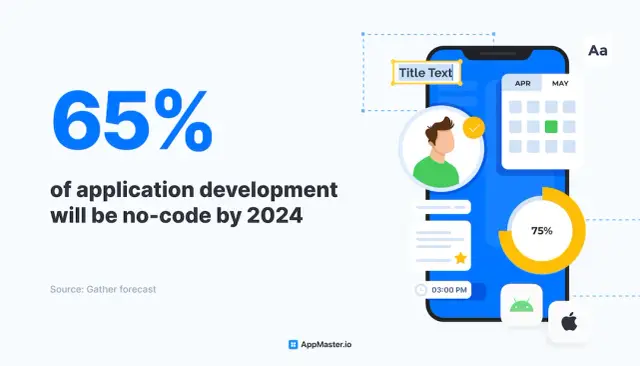10 Features Every Custom CRM Should Have
Explore the top 10 essential features every custom CRM should have to ensure success, boost efficiency, and foster seamless communication in your organization.

Introduction to Custom CRM Solutions
Customer relationship management (CRM) systems are essential tools for modern businesses that need to organize, manage, and analyze their customer interactions effectively. CRM solutions help organizations streamline their sales, marketing, and support efforts, while improving customer satisfaction and loyalty. However, not all CRM platforms are created equal, and sometimes, an off-the-shelf solution just doesn't cut it. That's where custom CRM solutions come into play.
A custom CRM solution is a tailored implementation of a CRM platform designed specifically to address the unique needs, processes, and requirements of an organization. By building a CRM system that fits your business like a glove, you can ensure that you have the essential features and integrations that will enable your organization to drive success.
In this article, we'll explore the top 10 essential features that every custom CRM system should have to fulfill the needs of your organization, boost efficiency, and foster seamless communication.
1. User-Friendly Interface
A user-friendly interface is the cornerstone of any successful CRM system. Your CRM should be easy to navigate, providing users with quick access to essential information and features. An intuitive, well-designed interface ensures that your employees can learn the platform quickly, reducing confusion and time spent on training. Moreover, a customizable interface that adapts to different user roles and preferences will increase productivity, ensuring that each team member can make the most out of the CRM system.
A good custom CRM solution should have:
- Intuitive navigation that makes it easy for users to locate features and access data.
- Customizable layouts and views to cater to individual preferences and job roles.
- Quick access to a search bar to efficiently locate customer records or other data.
- Practical sorting and filtering options that allow users to focus on specific data sets.
- Help and support resources available from within the CRM interface.

2. Contact and Account Management
Effective contact and account management is at the heart of any CRM system. Your custom CRM solution should provide a central repository for storing and managing all customer-related information. This includes contact details, communication history, notes, transactions, and documents, as well as any custom data relevant to your business. With this comprehensive view of each customer, your team can better understand their preferences, needs, and history, allowing for improved customer management and engagement.
When building your custom CRM, ensure that it includes the following features:
- A centralized database for all contact and account information, ensuring quick and easy access to all relevant data.
- Ability to create and manage custom fields to capture unique data points specific to your organization.
- Options to segment customers and accounts based on various criteria, such as industry, product preferences, or communication history.
- 360-degree view of each customer, showing a complete history of interactions, transactions, notes, and documents in a unified interface.
- Integration with communication channels, such as email, to automatically log correspondence with each contact.
3. Lead Management
Lead management is an essential component of a custom CRM because it helps you track and nurture leads, manage customer interactions, and optimize conversion rates to drive sales performance. Effective lead management should include the following features:
- Lead Capture: The CRM should enable automatic lead capture from multiple sources, such as website forms, social media platforms, and email campaigns. This allows your team to build a comprehensive database of prospective customers.
- Lead Scoring: A custom CRM should have a lead scoring system that helps you prioritize leads based on their potential to convert. This can be based on factors like engagement, company size, or industry. By focusing on high-quality leads, your sales team can convert them more effectively.
- Lead Segmentation: Your CRM should allow you to categorize leads into different groups based on specific criteria, such as demographics, interests, or behaviors. This enables personalized marketing campaigns and tailored follow-ups that resonate with your prospects.
- Communication History: A custom CRM system should record and track all interactions between your team and leads. This includes emails, calls, meetings, and notes, giving your team valuable context when communicating with prospects.
- Lead Nurturing: Your CRM should offer tools to create and automate lead nurturing campaigns, which include automated emails, content sharing, and follow-up reminders to keep prospects engaged and informed.
- Conversion Tracking: A critical aspect of lead management is tracking conversion rates and measuring success. The CRM should have built-in analytics and reporting tools to help you identify bottlenecks and optimize your lead management process.
4. Sales and Opportunity Management
Proper sales and opportunity management in a custom CRM helps your sales team identify, track, and close potential deals more efficiently. Here are some features that should be included in your CRM system to support sales and opportunity management:
- Opportunity Tracking: Your CRM should enable your team to track sales opportunities from initial contact through to close. The system should provide a comprehensive view of each opportunity, including important details like deal size, expected close date, and probability of winning.
- Pipeline Management: Create a visual representation of your sales pipeline to help your team better understand the status of each opportunity. This should include stages such as prospecting, qualification, proposal, negotiation, and close.
- Forecasting: Your CRM should incorporate sales forecasting tools that give your team better visibility into future revenue streams. This helps manage expectations and make informed strategic decisions.
- Quotation and Proposal Generation: A custom CRM should facilitate the generation of quotations and proposals with just a few clicks. This streamlines the sales process and ensures a consistent and professional presentation of documents.
- Product or Service Catalog: Your CRM should include a built-in product or service catalog that allows your sales team to easily access relevant information on pricing, discounts, and product bundles to assist in the sales process.
- Collaboration Tools: A custom CRM should promote teamwork within your sales department through features such as document sharing, task assignment, and real-time updates on opportunity status.
- Analytics and KPIs: Integrated analytics and customizable key performance indicators (KPIs) help your team monitor and analyze sales performance continuously. This enables effective sales management and the identification of areas for improvement.
5. Task and Activity Management
Efficient task and activity management in a custom CRM ensures that your team stays organized and focused on crucial customer-oriented activities. Here are some features that should be included:
Calendar Integration
Your CRM should integrate with popular calendar systems like Google Calendar and Microsoft Outlook. This provides a real-time connection between the CRM and individual team members' schedules, reducing manual updates and miscommunications.

Task Assignment
A custom CRM should allow for easy task assignment and collaboration among team members. This helps to delegate responsibilities, monitor progress, and ensure that everyone is working towards the same goals.
Task Prioritization
Your CRM system should let your team effectively prioritize tasks based on factors like due date, urgency, and potential impact. This helps optimize the use of time and resources and ensures that important tasks are completed first.
Reminders and Notifications
Automated reminders and notifications in the CRM help your team stay on top of tasks and deadlines. This fosters a culture of accountability and minimizes the risk of missed opportunities.
Activity History
It is essential for your CRM to record all customer-related activities performed by your team, such as calls, meetings, emails, and follow-ups. This provides valuable historical context, enhancing communication with customers and enabling better decision-making.
Collaboration Tools
Built-in collaboration tools within your CRM, such as shared documents, notes, and chat functions, can improve communication and coordination between team members. This supports a more cohesive, customer-centric approach to tasks and activities.
6. Analytics and Reporting
Analytics and reporting are essential components of any effective custom CRM solution. These features enable businesses to track performance, measure progress, and make data-driven decisions to achieve their goals. A well-implemented analytics and reporting system provides actionable insights, helping businesses optimize strategies, enhance customer service, and identify new opportunities for growth.
Here are the key elements that should be included in the analytics and reporting features of a custom CRM:
- Customizable dashboards: A customizable dashboard allows users to select the data they want to track and monitor in real-time. This feature should enable users to create tailored views with relevant KPIs, charts, and widgets based on their role and preferences.
- Data visualization tools: Effective data visualization tools such as charts, graphs, and maps make it easier for users to understand complex data and identify trends, patterns, and anomalies. A versatile CRM solution should provide a wide range of visualization options to help users gain valuable insights more efficiently.
- Real-time reporting: Real-time reporting ensures that users have access to the most up-to-date information, enabling them to make informed decisions and react quickly to changes in business trends or customer behavior. Custom CRM solutions should support real-time data updates and report generation.
- Advanced filtering and segmentation: Filtering and segmentation tools allow users to dive deep into the data by narrowing down specific subsets of customers, leads, or interactions. This granular analysis helps businesses identify opportunities and address issues on a more specific level, enabling targeted and effective strategies.
- Export and sharing options: Users should be able to easily export and share reports and data with their team members or stakeholders in popular formats such as PDF, Excel, or CSV, providing the context and insights necessary to make collaborative decisions.
7. Workflow Automation
Workflow automation is another crucial feature for modern custom CRM solutions, aimed at streamlining processes, increasing efficiency, and reducing the possibility of human errors. By automating repetitive tasks and setting predefined rules for certain business activities, workflow automation can save time, reduce manual efforts, and help teams work more effectively.
These are some of the key aspects of workflow automation in a CRM system:
- Task automation: CRM users should be able to create and automate routine tasks such as sending follow-up emails, updating lead statuses, or creating reminders using predefined actions and triggers. This reduces manual efforts, increases productivity, and helps avoid missed opportunities.
- Process management: A custom CRM system should provide the ability to design, execute, and monitor business processes based on specific organisational requirements. This feature allows users to model workflows using visual tools, assign tasks to team members, and measure the efficiency of each process to identify areas for improvement.
- Automated alerts and notifications: Timely notifications and alerts help keep users informed of crucial events, upcoming deadlines, or operational changes. Custom CRMs should allow the creation and customization of alerts and notifications based on various triggers and conditions so that nothing falls through the cracks.
- Email templates and automation: One of the primary uses of CRM solutions is managing email communication with customers and leads. To streamline and standardize communications, CRM systems should allow users to create pre-defined email templates and automate the sending process based on specific events or conditions.
By leveraging workflow automation in a CRM solution, businesses can become more efficient, responsive, and better equipped to serve their customers and meet their goals.
8. Integration Capabilities
Integrating your custom CRM solution with other tools, platforms, and software is essential for maximizing its potential and ensuring seamless data exchange and workflows across your organization. A well-integrated CRM helps businesses track and manage all of their customer interactions, regardless of the point of origin, fostering effective collaboration and communication between teams.
These are some key integration capabilities every custom CRM should offer:
- Email integration: Connecting your CRM system with your email service ensures seamless communication, with all customer interactions being logged and easily accessible. Popular platforms such as Gmail, Outlook, and Exchange should be easily integrable with your CRM.
- Marketing automation integration: Integrating your custom CRM with marketing automation tools can streamline the management of marketing campaigns, lead generation, and lead nurturing. This helps your marketing and sales teams work more efficiently and collaborate more effectively.
- Social media integration: Connecting your CRM with popular social media platforms enables businesses to better track and manage their social media presence and leverage social selling techniques. Social media integration can also help in gathering customer insights and understanding public sentiment about your products or services.
- Third-party API integration: Your custom CRM should provide well-documented, comprehensive APIs (Application Programming Interfaces) that allow it to interact with other software systems, exchanging data and triggering processes. Ensure that your CRM supports both REST and GraphQL APIs for maximum flexibility and compatibility.
By choosing a custom CRM solution with powerful integration capabilities, businesses can create a unified ecosystem of tools that communicate efficiently, save time, and reduce the possibility of data silos.
Tools like AppMaster's powerful no-code platform can assist in creating custom backend, web, and mobile applications with seamless integration of essential CRM features. With AppMaster, you can visually create data models, business logic, and API endpoints for your custom CRM, ensuring a smooth integration process with your existing software solutions.
9. Mobile Access
Mobile access is an essential feature for any modern CRM system, as it provides a significant competitive advantage and helps to optimize productivity across your organization. With mobile access, your custom CRM should be easily accessible through mobile devices, such as smartphones and tablets, allowing your team to stay connected and updated while on the go. Here are some of the main benefits of having mobile access in your custom CRM:
- Improved Accessibility: Mobile access enables your sales and customer support teams to engage with clients and prospects from any location, at any time. This ensures that important tasks and follow-ups are not missed, and that business opportunities can be quickly acted upon.
- Enhanced Customer Interaction: Mobile access allows your team members to immediately access relevant customer information during interactions, improving their understanding of clients' needs and histories. This helps to foster personalized, effective relationships with clients, ultimately leading to increased customer satisfaction and loyalty.
- Real-Time Updates: A mobile-optimized CRM keeps your team updated with real-time data, such as new leads, deal statuses, and customer information. This ensures that everyone stays informed about crucial changes and events, allowing for more proactive decision-making and action.
- Task Management: With mobile access to your custom CRM, your team can efficiently manage tasks and appointments, setting reminders, and updating task statuses whenever needed. This contributes to better overall time management and increased productivity.
When considering mobile access for your custom CRM, pay attention to features such as offline access, push notifications, and device compatibility. Having a mobile app that is compatible with both iOS and Android devices ensures that your entire team can benefit from this valuable feature.
10. Security and Compliance
The security and compliance of your custom CRM are crucial factors to consider, as they directly impact the trustworthiness and reputation of your organization. By ensuring that your CRM system adheres to relevant data protection regulations and industry requirements, you can protect sensitive customer information and maintain client trust. Here are some essential security and compliance features to look for when creating your custom CRM:
Data Encryption
Secure encryption of data both at rest and in transit helps to protect sensitive customer information from prying eyes and potential data breaches. This includes encryption of data stored in the CRM database, as well as data transmitted over the internet or between CRM components.
Access Controls
Role-based access controls (RBAC) can help to limit access to specific CRM functionalities and data only to those users who need it, reducing the risk of unauthorized access and data leaks. Consider implementing multi-factor authentication (MFA) for an extra layer of security.
Audit Trails
Audit trail capabilities within your CRM system can track and record user activities, changes, and events, creating an easily accessible evidence trail in case any security or compliance issues arise.
Compliance Management
Ensure your custom CRM adheres to relevant industry regulations and privacy requirements, such as GDPR, HIPAA, or CCPA. This may include features like data anonymization, consent management, and data retention policies.
In addition to these core security components, consider regular security assessments, penetration testing, and vulnerability management to ensure the ongoing protection of your custom CRM.
Bonus: Leveraging AppMaster for Custom CRM Solutions
Designing a custom CRM can seem like a complex and resource-heavy task, but with the powerful no-code platform provided by AppMaster, you can create your CRM solution efficiently and cost-effectively. AppMaster offers a comprehensive suite of tools for building backend, web, and mobile applications, enabling you to design a CRM system that truly meets your organization's requirements.
With AppMaster, you can visually create data models, business logic, and API endpoints tailored to your custom CRM solution. The platform's drag-and-drop UI design capabilities help to ensure an intuitive and user-friendly experience for your team, streamlining learning curves and boosting productivity.

Additionally, AppMaster's integration capabilities make it easy for your CRM system to communicate seamlessly with other essential tools and platforms within your organization. By leveraging the power of AppMaster's no-code development environment, you can eliminate technical debt and significantly reduce both development time and the costs associated with building a custom CRM solution. Whether you're a small business or a large enterprise, AppMaster can help you create a custom CRM designed to drive success and optimize your organization's processes.
Conclusion
A custom CRM solution should include all the necessary features to help your organization streamline processes, improve customer relationships, and accelerate growth. By ensuring that your CRM system incorporates user-friendly interfaces, comprehensive contact and account management, effective lead and opportunity management, data analytics, reporting, security, and mobile access, among other essential features, you'll be well-positioned to capitalize on potential business opportunities and maintain lasting customer satisfaction.
When building your custom CRM, consider utilizing a powerful no-code platform like AppMaster to simplify the development process and ensure a high-quality, scalable solution that meets your organization's unique needs.
FAQ
A custom CRM solution is a tailored and unique implementation of a customer relationship management system that caters specifically to an organization's needs, addressing its unique processes and requirements.
Custom CRM solutions can provide a wide range of benefits, such as increased efficiency, better customer service, and improved sales performance, by delivering tailored features and integrations that precisely meet the organization's needs.
A user-friendly interface is a critical CRM feature that allows users to easily navigate the system, quickly access information, and perform tasks efficiently. It should be intuitive, easy to learn, and adaptable to various user roles and preferences.
A custom CRM should integrate smoothly with other essential business tools, platforms, and software applications such as marketing automation systems, ERP, social media, email services, data analytics, and document management systems.
Mobile access to a CRM system enables users to quickly access valuable information, stay updated, and perform crucial tasks without being confined to a physical location. This increases productivity, improves responsiveness, and allows for enhanced customer engagement.
Security and compliance features in a custom CRM system help protect sensitive customer data and ensure that the use of the platform complies with relevant laws, industry regulations, and privacy requirements, mitigating risks and maintaining customer trust.
AppMaster's powerful no-code platform enables the creation of custom backend, web, and mobile applications with seamless integration of crucial CRM features. With AppMaster, you can easily create data models, business logic, and API endpoints to build your desired CRM solution.
Effective lead management in a CRM system should include tools for determining lead quality, tracking communication history, automating follow-up processes, and ultimately maximizing conversion rates to improve sales performance.
Analytics and reporting tools in a CRM system provide crucial data-driven insights into business performance, customer behavior, and sales activities. These insights enable informed decision-making and help optimize strategies for improved success.
Workflow automation in a CRM system can streamline repetitive tasks, accelerate business processes, and minimize human errors. This results in increased productivity, improved customer service, and reduced operational costs.





